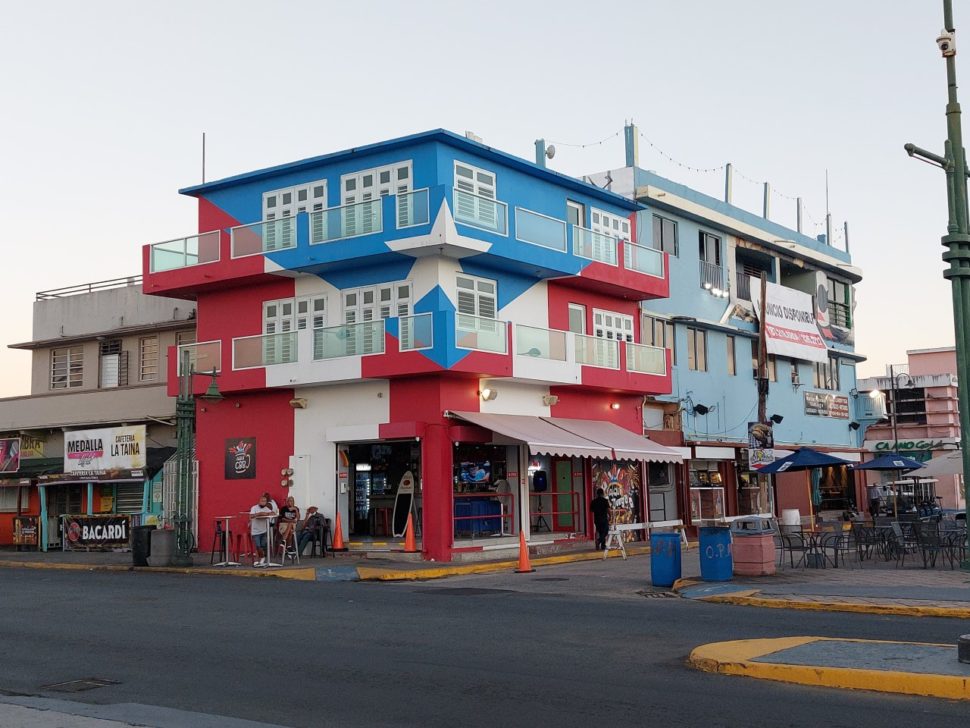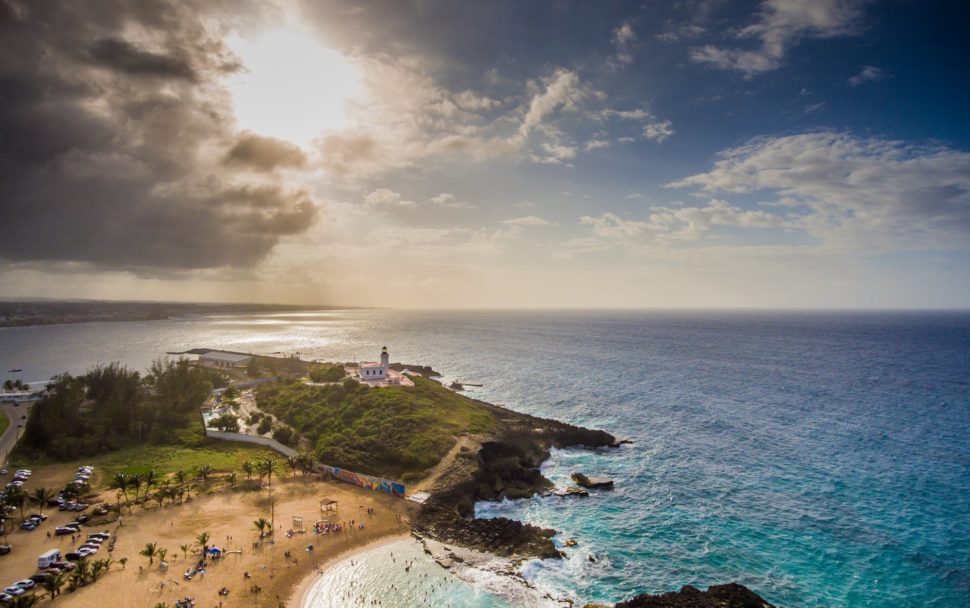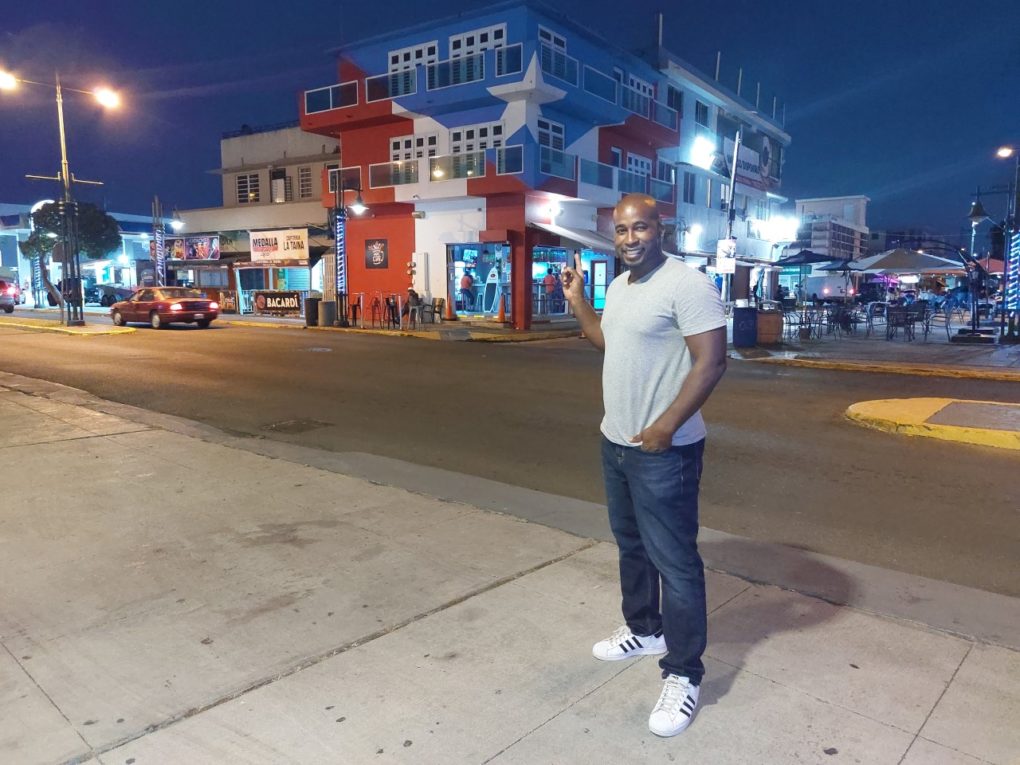Some travelers feel an instant connection once they arrive in a new place, which was Kamar Gore’s experience when he disembarked in Puerto Rico for the first time. Subsequent visits convinced him to move there in 2012, and he has no plans to return to the mainland.
Beyond Puerto Rico’s lively culture and sun-soaked shores, it recalled the Japanese island of Okinawa, where Kamar lived while serving in the Air Force.
“As soon as I touched the ground, I felt I had been there before,” Kamar told Travel Noire. “Not because it was some spiritual experience, but it reminded me of Okinawa, where I spent so much of my adult life. The buildings. The tropical feel. The way the people were so relaxed and friendly.”
Born in Brooklyn, Kamar was raised with a strong sense of self, which was instilled in him from an early age. He’s also knowledgeable of the global impact of Black ingenuity, and in Puerto Rico this is plain to see. Popular foods such as mofongo can be traced to Angola, and dances and music styles like bomba and salsa are also linked to the motherland. Puerto Rico, like Cuba and the Dominican Republic, wouldn’t be what it is today without African influence.
Kamar served in the Air Force for just over 13 years, and much of that entailed living and working overseas. It brought him across Asia, Europe and North America. He was based in Okinawa twice, and there was a certain charm which set it apart from other places. Living in Japan permanently wasn’t practical, but Puerto Rico was a perfect alternative, allowing Kamar to visit friends and family on the mainland easily.

Kamar’s experience as a Black man living in Puerto Rico has been less stressful, particularly relating to interactions with law enforcement. While he’s always been aware of systemic racism on the mainland, he didn’t realize the extent of his own trauma until after he moved.
“Even though Puerto Rico is part of the United States, it’s still very much its own place culturally,” Kamar said. “You see US influences on the culture, especially with the younger generation, but they are still very proud to be boricua, and it’s a beautiful thing.”
“I don’t want to paint the picture that there’s no racism, but it’s not blatant. I didn’t realize I had PTSD when it came to the police until I was pulled over for the first time here. In the states, I had to follow the rules. Keep your hands on the steering wheel and don’t make any sudden moves. When the police want your license and registration, you ask to get them, because they might shoot if they think you’re reaching for a weapon. Here in Puerto Rico, I don’t have those same fears.”
If you’re visiting a country or moving there, it pays to learn even a few phrases in the host language. While Kamar could probably get away with English in the major cities and touristy areas, he’s proficient in Spanish.
“Everywhere I go, I try to learn the language,” he said. “When I first moved to Puerto Rico, I lived in Cidra, the town of Eternal Spring. There isn’t much tourism there, so the need to speak English is little to none for the common person. Although English is taught in schools, people in Cidra don’t get a chance to use it. Immersion into the culture is one of the best ways to learn how to speak any language. You’re in a ‘do or die’ type of environment, and the mind is so great it will adapt in situations like that.”

As is common in the Caribbean, Puerto Rico offers a more relaxed way of life, something that Kamar embraces.
“People are more laid back because it’s a tropical island, the weather is great most of the time, and you can go to the beach every day if you want,” he said. “People live to work on the mainland, but in Puerto Rico, people work to live. There’s a huge difference. Here, the group collective is pushed more than the me, myself and I and this is mine approach. No, this is our stuff, we do things together as friends, as family, as a church group, whatever the case may be.”
Kamar enjoys salsa some evenings, which is offered all over the island. But carving out time for exercise and relaxation at home is just as important. At night, he’s serenaded with what sounds like birdsong to the untrained ear. But it’s actually a chorus of coquís, a species of nocturnal frogs.
“They’re cute,” Kamar said. “Years ago, one hopped on my pillow. I picked him up and took a picture with him in my hand with his little webbed feet. The lady who owns my house grows orchids in the garden. Coquís love plants that hold water, so there are a ton of them out there. But,” he added with a laugh, “I don’t even notice them singing until somebody points it out.”
Is Puerto Rico where he’ll live the rest of his life?
“I can see that,” Kamar said, but there are some societal changes he wants to help implement.
“Black Puerto Ricans have no representation in media or government. It’s almost like they don’t exist unless people are talking about bomba and plena. One of my goals is to give a voice to my brethren here. I don’t know how I’m going to do it, but they need a voice. A lot of people come to Puerto Rico, and they don’t realize that on the other side of the airport is the blackest community on the island, Loíza. It’s part of the San Juan metro area, but the community is marginalized, and it’s sad.”
You can follow Kamar on Instagram at TravelPRnBeyond, and look out for his YouTube channel in the future.





